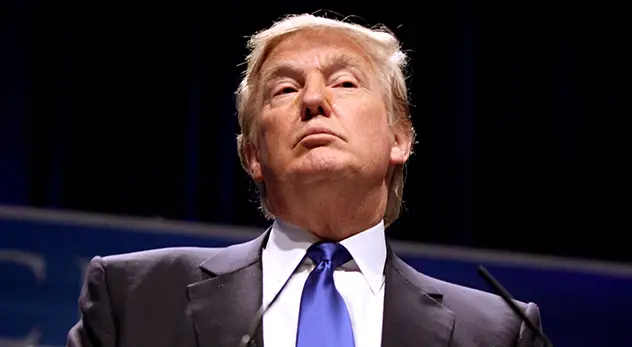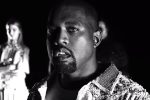Hail to the Chief
President Trump’s inaugural speech certainly paid tribute to figures of history, just not America’s.
By Jonathan Kim, University of Texas at Dallas
When I first read Trump’s inaugural speech, which he apparently wrote himself, it evoked in me not a sense of unity, or patriotism, or even those short-lived feelings of “inspiration” (as did Rocky’s inimitable speech to his son in “Rocky Balboa”), but one of humor, disbelief and heartbreak: humor in his genuine attempt to pawn off his sappy rhetoric as substance; disbelief in his equally genuine conviction that he is America’s long-awaited savior, and heartbreak in the now-certainty that he has broken a sacred tradition of a country that had heretofore been led by men of character and principle.
Trump’s compulsivity to lie is not only legendary, but he also offers those lies, as Gopnik from “The New Yorker” aptly states, in an “ancient tone of rage, vanity and vengeance.” His blunt and blatant disregard for truth reflects his lack of any sense of principle. (For what is more basic a principle than that of truth?)
Since moral character cannot form without principles, and since Trump has clearly proven that he hasn’t got the latter, his lack of moral standing is substituted by his belief that following his atavistic hunches is character, what Nietzche meant when he said, “A man far oftener appears to have a decided character from persistently following his temperament than from persistently following his principles.” In other words, and borrowing from the fabled parable, Trump is a constantly growing, multi-million dollar house built on sand.

And his inaugural speech shows this character falsity. Every presidential inaugural address in the past harkened back to the struggles of America in procuring her freedom, and solidified the importance of the country, and thus its people, in progressing the principles of liberty, justice and democracy.
Ronald Reagan, to whom Trump at times had been wrongfully compared, spoke in his inaugural address of the great humility of George Washington, of Thomas Jefferson and the eloquence of the Declaration of Independence, of Lincoln and his life and love for America, of the heroes that lie at the Arlington National Cemetery, and how these add up to “only a tiny fraction of the price that has been paid for our freedom.”
Barack Obama, in his inaugural speech, reminded our country that “greatness is never a given. It must be earned,” and spoke of the soldiers who have fallen “in places like Concord and Gettysburg; Normandy and Khe Sahn.” Those marks in our history are precisely what make America American; they create and inform the identity of our country by establishing its principles, and every past President has paid homage to them in their inaugural addresses. But where are those tokens of history in Trump’s speech? There are none.
In fact, substitute any country for “America” in his speech, and, with the exception of the prelude and his mentions of Obama, D.C., Detroit and Nebraska, there’s not much in it that speaks specially of our country.
If “German” is substituted for “American,” and if the above mentions are omitted, could the reader prove that its author isn’t more than a modern-day, semi-literate, leveled-out Hitler wannabe? Although its nationalistic trend attempts to match the verve found in Hitler’s speeches (a collection of which our president apparently keeps near his bed), it not only fails, but also evinces Trump’s Big Stick attitude as the only thing “American” about him.
Not to mention, even Hitler had principles, however abhorrently racist and nationalistic they were. In his 1933 radio address to the Germans, after President Hindenburg reluctantly appointed him as Reich Chancellor, Hitler spoke of the “misery” and the “heartbreaking disunity” of a people who had been “blinded by promises made by those at home,” which thus lead to the “collapse of its political position abroad.” (I trust the reader to make the obvious correlations in Trump’s speech.)
Thus, Hitler asserted to his listeners that his government would “regard it as its first and supreme task to restore to the German people unity of mind and will. It will preserve and defend the foundations on which the strength of our nation rests.”
Such is the chorus of nationalism, and one in which Trump had attempted to join with croaking voice. But, unlike Trump, Hitler recognized that principles, to which he alluded in the same address as “the highest values of our past, of the Reich, of its honor and its freedom,” are the foundation on which a country is built; he defined Germany by what he believed were principles rooted in its history.
If one were to ask Trump on what he believes to be America’s principles and from where they come, one could expect, and with little surprise, a reply tantamount to “The primary principle of America is America, and it comes from the people” followed by his usual bloviations. Trump is less of a man of thought than was Hitler.

And this lack of thought has proven dangerous. In just days in the high seat (or at the ship’s wheel if you prefer to call him Pirate-in-Chief), Trump has signed off on a number of executive orders that have put American principles inside, in the words of the late Christopher Hitchens, a “wind tunnel of cloacal abuse.” His insecurities, unhinged by thoughts or principles, are left to run amok in the playground of American politics, and are disguised by his dogmatic refusal to admit wrong and his incessant need to play the victim-card.
Most recently, Trump fired acting attorney general Sally Q. Yates for refusing to defend his immoral and illegal executive order barring immigrants from seven predominantly Muslim countries. His brash and classless act sent a Hitlerian message not only to his White House dissenters, but also to the rest of America and the world. (After Hitler was appointed Reich Chancellor in 1933, the Enabling Act passed muster to give him unrestrained power, and thus “enabling” him as the de facto dictator of Germany. He used his power to dissolve rival political groups and silence his dissenters.) No wonder why Trump’s whimsical use of the word “righteous” and “America” in his speech were left bereft of any life and meaning.
In a 1925 article published in “Young India,” Mohandas Gandhi warned his readers against “The Seven Social Sins.” They include “Pleasure without conscience,” “Knowledge without character,” and “Commerce without morality.” But the one that Trump has most potently and overtly violated is the last social sin: “Politics without principle.” That is, and will be, the reputation of the 45th president of the United States of America.


















The convoluted case of Jonathan Kim, with little evidence to support his allegations, is pure propaganda. It is closer to the unfounded rhetoric Hitler spewed than President Trump ever declared. President Trump has actually listened to what half of the population feels are real issues in a country that has been brainwashed for the past 8 years that you as young people should settle for less; that you should turn from a republican democracy that has worked for 200 years to a liberalistic socialism that has failed frequently all over the world; that you should accept terrorism and wide-open borders as a way of life, just be sure you personally aren’t in that night club, that church, or that skyscraper when it goes down or in that crowd when some radical decides to run down a hundred people with a truck; that we should weaken our military to the point where they could not defend us in peacetime, much less wartime; or that chaotic anarchy should be accepted as a means to prove a group’s point. The list goes on and on. The one-sided media in this country, devoted to and acting as an arm to the government run by a short-lived junior senator who voted (albeit infrequently) further to the left than the self-declared socialist representative and who before that was a community activist, has helped spread these cancerous beliefs like tentacles across this country and created a Hitler-like regime, reminiscent of Orwell’s 1984. If this is all many young people have grown up with for the past 8 years, it is no wonder your minds are poisoned to see that many American see our way of life, our love of country, and our traditions are being trampled upon and denigrated. Bitter rancor serves as a fuel to the fire on both sides of the fence, and I will end my diatribe by saying I will pray for you and for this country…that again we may find common ground, love, and respect for opposing views. Meanwhile, why not give President Trump a chance to truly help this country get on its feet economically again, to help protect us from terror, and to show you that he really has the hopes and dreams of this great country in mind.
Dear Johnnie,
Thank you for your letter and for taking the time to write out your thoughts. I share with you a passion for our country, though we have different attitudes towards our current leader in office.
I take seriously your accusation of my article as being “pure propaganda,” as you claim it to be a sort of “unfounded rhetoric.” I intended the article as an opinion piece with a focus on what I personally extracted from Trump’s inaugural speech, and not on his right-wing politics. Nevertheless, in reading through your comments, I had hoped to find facts that might help balance out the sentiments of my article, but I must regret that I found your reply as a sort of “unfounded rhetoric” as well.
However, I did find interesting your fleeting mention of how the media has helped spread socialist ideologies and “created a Hitler-like regime, reminiscent of Orwell’s 1984.” Your point reminded me of a New Yorker piece by Adam Gopnik that precisely claims the opposite; Trump, not the media, is more likely to create a country that is redolent of Orwell’s 1984. (Since replies don’t allow hyperlinks, I will include the link to the article at the bottom of this letter.)
In response to your comment of giving Trump a chance, I am doing exactly that, but while not suppressing my counterviews in fear of opposition. As you know, freedom of speech and of press have been part of a long and sacred tradition protected by our Bill of Rights, and Trump’s repeated diatribe against the media and his passing of blame to his dissenters seem to threaten those freedoms.
It is also important for me to note that my piece in no way reflects the views of “young people.” The opinions in my piece are strictly my own.
To conclude, thank you for acknowledging the importance of “common ground, love, and respect for opposing views.” Controversy in American politics has roots back, and perhaps further, to Hamilton and Madison in the founding of our beloved country, and I am very happy to see that such a tradition has, at least in part, some presence to this day.
If you wish to correspond further, please contact me through my personal email: jonathankim228@yahoo.com. In consideration of my other readers, I believe that a private conversation going forward is most fitting.
Wishing you the best,
Sincerely,
Jonathan Kim
Link:
Gopnik’s New Yorker article: http://bit.ly/2jce4c5
Jonathan, I do appreciate your responding. I really don’t visit this site that often, but out of curiosity (thought the editors would remove my response really) I came back. I am so busy in my job and outside activities that I will have to communicate with you in piecemeal. I wanted you to know that I feel it is awesome that you want to dialogue with me. Just think how amazing if more people were willing to actually stop and listen to one another.. We could change the country! Will email you.
[…] Source: The First Un-American Inaugural Speech […]